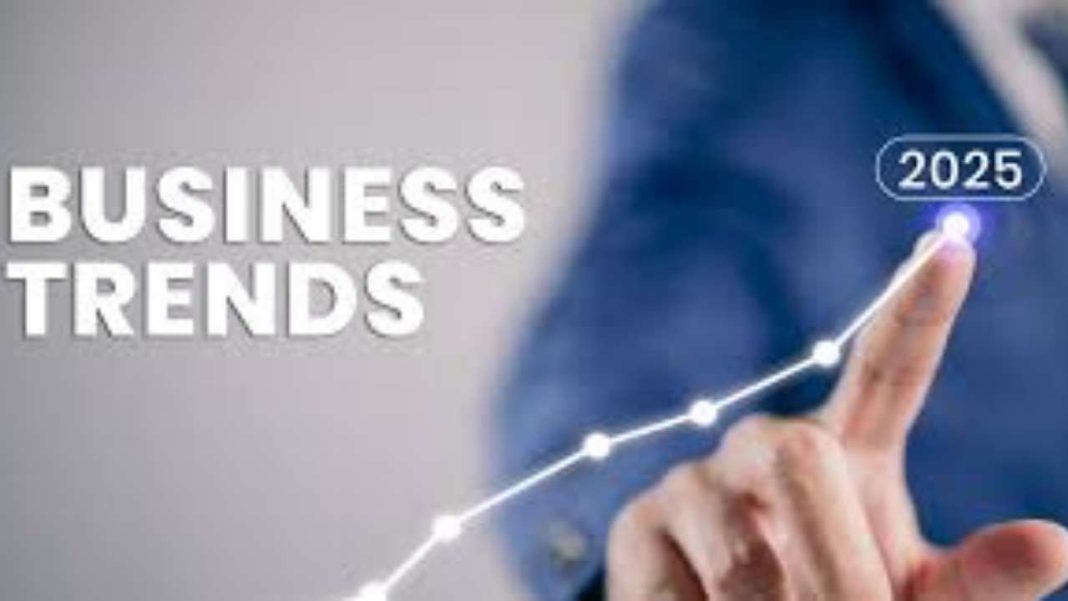The business landscape is in a state of perpetual flux, driven by rapid technological advancements, evolving consumer expectations, and a growing global consciousness. As we navigate 2025 and look further into the future, several critical trends are not just reshaping industries but fundamentally redefining the essence of commerce itself.
1. AI as the Core of Operations: Artificial Intelligence, particularly Generative AI and Agentic AI, is moving beyond being a buzzword to becoming an indispensable operational backbone. In 2025, businesses will increasingly leverage AI for hyper-personalized customer experiences, predictive analytics, automated decision-making, and streamlining complex workflows. From AI-powered customer service chatbots to sophisticated algorithms optimizing supply chains and informing strategic choices, AI will empower businesses to operate with unprecedented efficiency and precision. This shift demands a focus on AI governance and ethical considerations to ensure responsible implementation.
2. Sustainability as a Business Imperative: Environmental, Social, and Governance (ESG) factors are no longer optional but central to corporate strategy. Consumers, investors, and regulators are demanding greater transparency and accountability. By 2025, businesses will be deeply embedding sustainability into their core operations, embracing circular economy principles, and setting ambitious science-based targets for carbon reduction. This involves ethical sourcing, minimizing waste, investing in sustainable technologies, and transparently reporting on environmental impact. Companies that genuinely prioritize sustainability will not only meet compliance but also build stronger brand loyalty and attract conscious capital.
3. The Evolving World of Work: Hybrid and Human-Centric: The pandemic irrevocably altered work models, with hybrid and remote work firmly established as the new normal. Beyond 2025, businesses will continue to refine these models, focusing on fostering inclusive cultures that support both in-office and distributed teams. This necessitates significant investment in collaborative technologies and a renewed emphasis on employee well-being, mental health, and work-life balance. The rise of the gig economy for specialized skills will also persist, requiring flexible talent acquisition strategies. Furthermore, the integration of AI will necessitate upskilling and reskilling initiatives to empower the human workforce to collaborate effectively with intelligent machines, shifting the focus to uniquely human skills like critical thinking, creativity, and emotional intelligence.
4. Hyper-Personalization and Customer Experience: In an increasingly competitive market, customer experience (CX) will be the primary differentiator. Businesses will leverage advanced data analytics and AI to create hyper-personalized experiences, tailoring products, services, and communications to individual preferences. This goes beyond simple segmentation, aiming for a one-to-one relationship with the customer. The rise of immersive technologies like Augmented Reality (AR) will further enhance customer engagement, allowing for virtual product trials and interactive brand experiences.
5. Cybersecurity at the Forefront: As businesses become more digitalized and interconnected, cybersecurity risks escalate. Data privacy and protection will be paramount in 2025 and beyond. Companies will invest heavily in robust cybersecurity infrastructures, AI-powered threat detection, and comprehensive data governance frameworks to safeguard sensitive information and build customer trust. The growing threat of cyber-attacks will also necessitate greater collaboration between businesses and governments to develop proactive defense strategies.
The journey beyond 2025 promises a dynamic and challenging, yet equally opportunistic, future for businesses. Success will hinge on adaptability, a willingness to embrace technological innovation, a deep commitment to ethical practices and sustainability, and an unwavering focus on the human element – both employees and customers. Those that proactively navigate these converging trends will be the ones that thrive in the new era of commerce.
